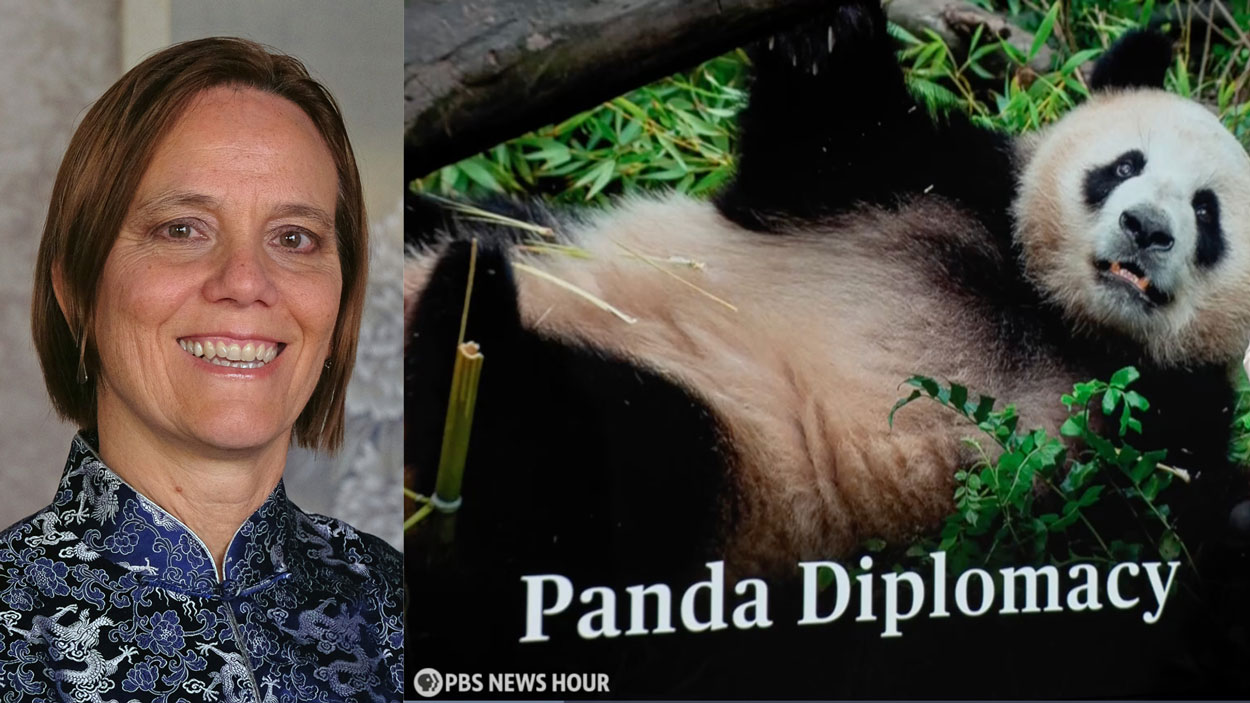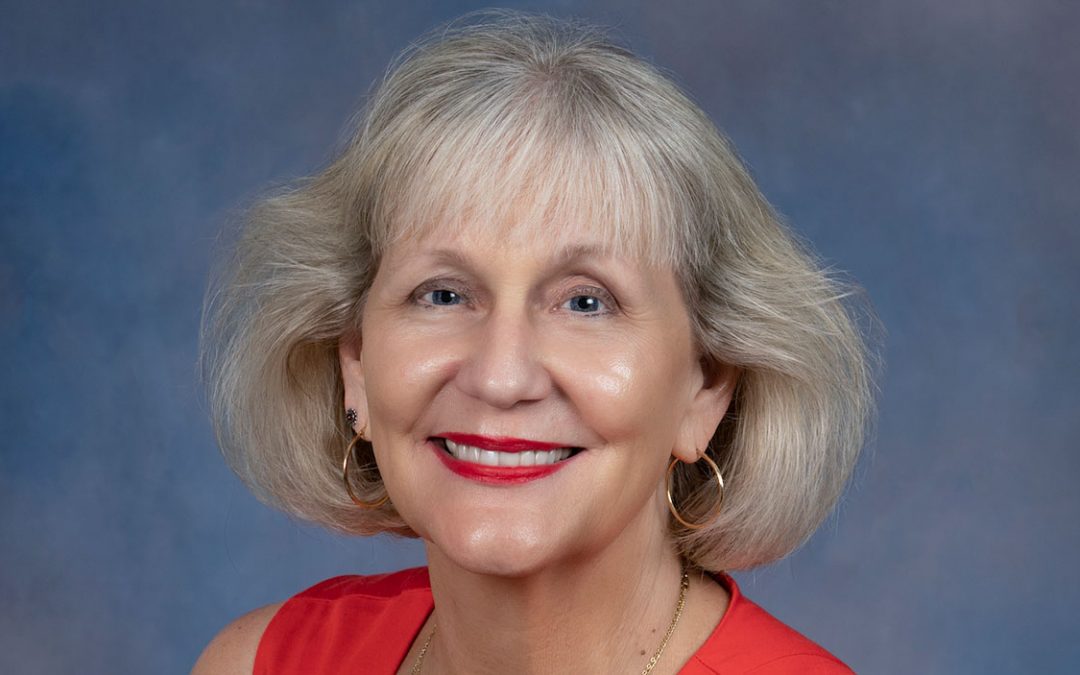
Susan Brownell, a Curators’ Distinguished Professor of Anthropology at the University of Missouri–St. Louis, spoke to PBS News Hour about the history of “panda diplomacy” in a recent news report. (At left, photo by August Jennewein; at right, screenshot from PBS News Hour report)
Giant pandas Xin Bao and Yun Chuanmade made their debut at the San Diego Zoo last Thursday with the opening of the new Panda Ridge exhibit. They are the first pandas to arrive in the United States in more than two decades.
The Smithsonian National Zoological Park in Washington, D.C., is also preparing to welcome new pandas from China later this year, as is the zoo in San Francisco. That marks a notable shift from last year when national zoo said good-bye to three bears amid heightened tensions between the U.S. and China. The Memphis Zoo also sent home its panda last year, and Zoo Atlanta announced that its four bears would be returning to their home country this fall.
Amid the apparent turn signaled by the arrival of the new pandas in San Diego, PBS News Hour examined the history of so-called “panda diplomacy” – the practice of China sending the beloved and vulnerable bears to other countries as a diplomatic tool and to promote wildlife conservation. Among the experts reporter William Brangham consulted for the piece was Susan Brownell, a Curators’ Distinguished Professor of Anthropology in the Department of History at the University of Missouri–St. Louis and a member of the National Committee on U.S.-China Relations.
“When pandas are withdrawn, China doesn’t say, this is a symbol of bad relations,” Brownell told Brangham. “Some other excuse is always given.”
As Brownell noted, that hasn’t stopped many from using the transfer of pandas – which were first presented as gifts beginning in 1941 and since 1984 have been officially leased from the Chinese government – as evidence of the state of diplomatic relations.
“There’s been this whole furor about pandas being sent back to China and not renewed as a symbol of the deterioration in U.S.-China relations,” Brownell said.
Watch the full story:
Brownell, whose expertise extends to Chinese sports and the Olympic Games, was also cited over the weekend in a Newsweek report analyzing examining the Olympic medal count, where China matched the United States with an Olympic-leading 40 gold medals.
The story noted China’s practice of recruiting “athletes from a very young age into state-sponsored sports schools where they live and train together, reuniting with their families only a few times a year, with the goal of maximizing their development.” The approach seems to have produced results as China has established itself as a major contender in the Olympic Summer Games since 2000, even earning the most gold medals during the Beijing Games in 2008.
But Brownell told Newsweek China has been diversifying its practices with more and more athletes gaining experience elsewhere before chasing Olympic glory. Just not in gymnastics or table tennis because, as Brownell noted, those sports “benefit from recruiting very young kids into sports boarding schools, since those sports require starting at a very young age.”
Read the full story at Newsweek.com.














